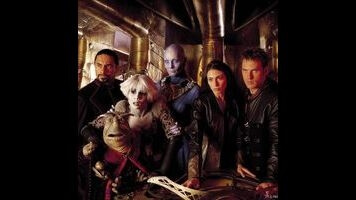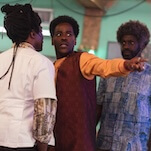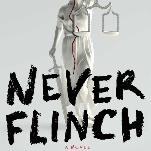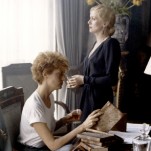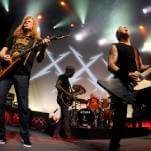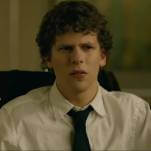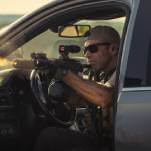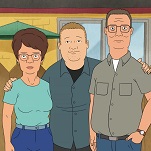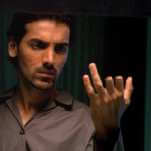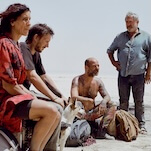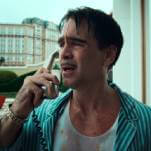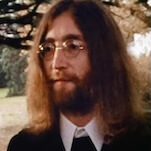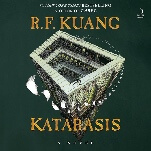When creating their characters, space-based science fiction shows often run into a problem of relatability. After all, James T. Kirk and Jean-Luc Picard are the captains of the Enterprise, the flagship of Starfleet and home to its most accomplished officers. They are brilliant tactical minds who can be counted on to emerge triumphant while routinely facing situations we would find utterly incomprehensible. Even when characters in sci-fi shows aren’t so explicitly the best of the best—like, say, the ragtag crew of Serenity—they all still possess a knowledge base vastly different from our own. Their history is different, their science is different, their technology is different, and their pop culture, assuming they have any, is completely different. None of these are insoluble problems, of course, but they do present a basic layer of separation between the show’s characters and its intended audience.
The show is the brainchild of Rockne S. O’Bannon, a veteran TV writer whose other credits include writing the screenplay for Alien Nation and creating the Roy Scheider submarine show seaQuest DSV (not to mention the recent CW trainwreck Cult), and Brian Henson, the son of legendary puppeteer Jim Henson and the longtime chairman of his father’s eponymous company. The show was produced in Australia and ran first on the country’s Nine Network before wending its way to the United States—the show featured a primarily Australian cast and production team, although the writing staff was mostly American. Brian Henson and his team provided the show’s state-of-the-art prosthetic and animatronic elements, most notably in the form of two of the show’s main characters, Rygel and Pilot, who are quite possibly the most complex puppets ever built. The end result is a show that feels uniquely alien, and its visuals generally stand up better than many of its sci-fi contemporaries.
The episode opens at Cape Canaveral, as American astronaut John Crichton is set to head into space to test out Farscape-1, an experimental module of his own design that will theoretically use Earth’s gravity to achieve unprecedented speeds and potentially set the stage for interstellar flight. Crichton has the oddest sense something big is about to happen, but his concerns are momentarily allayed after a pre-launch chat with his father, legendary Apollo astronaut Jack Crichton (Kent McCord, who conveys much of the same old-school, all-American qualities he brought to his starring role on the long-running Dragnet spin-off Adam-12). Jack gives his son the sage advice quoted at the top of this review, which is one of a few lines in “Premiere” that serve as mission statements for the show’s central characters. While testing Farscape-1 up in Earth’s orbit, Crichton gets caught in a wormhole, a mysterious tunnel in space-time that sends him hurtling through the universe to parts unknown, leaving Earth behind and kicking off Farscape proper.
So what strange new universe does Crichton arrive in? His module emerges in an asteroid field in the midst of a space battle between dozens of small starfighters and a single gigantic ship, which uses its tractor beam to pull him aboard—though not before Crichton’s unexpected presence causes one of the fighters to clip his module’s wing and explode. Once aboard the starship, Crichton soon learns this was until extremely recently a prison ship, and a trio of alien newly liberated inmates have gained control and are currently attempting to escape their captors. They pulled in Crichton’s ship because they hoped he knew the secrets of wormhole travel, a technology with which they are unfamiliar. Before Crichton (or the audience, for that matter) can get his bearings, he is choked, shoved, interrogated, spat upon, and finally rendered unconscious when stung by one of the alien’s tongues. When he awakens, he finds himself naked in a prison cell with a captured fighter pilot, whose species turns out to be identical in appearance to humans. Of course, the moment he attempts to greet the newcomer he’s thrown against a wall, kicked multiple times, pinned to the floor, and again ordered to identify himself.
I’ve intentionally kept those descriptions vague, because—and it’s easy to forget this when rewatching the show with knowledge of all that comes later—“Premiere” takes its time in filling in these blanks, and the show often asks us to accept on faith that what we are watching makes sense, particularly in the first 20 minutes. We learn that the escapees are the hulking, quick-tempered Ka D’Argo (Anthony Simcoe), a Luxan warrior who spent the last eight cycles (the show’s equivalent to years) imprisoned for the crime of killing a superior officer; Zotoh Zhaan (Virginia Hey), a blue-skinned, anarchic, and sexually liberated priestess from the planet Delvia; and the diminutive, haughty Rygel (voiced by Jonathan Hardy), formerly Rygel XVI, Dominar of the mighty Hynerian Empire before his cousin betrayed him. Their ship is Moya, a living bio-mechanoid craft known as a Leviathan, which is controlled from a central hub by its symbiotic Pilot (voiced by Lani Tupu). Before their prison break freed Moya of her control collar, all were held prisoner by the Peacekeepers, who come across as a particularly thuggish, fascist spin on Starfleet. The two main Peacekeepers we meet in “Premiere” are Officer Aeryn Sun (Claudia Black), who is dragged aboard Moya and is ultimately forced to ally herself with the escapees, and Captain Bialar Crais (also Lani Tupu), who swears vengeance against Crichton after learning his brother was the Prowler pilot killed in the collision with Farscape-1.
Like most sci-fi pilots, “Premiere” has a ton of setup and exposition to get through, leaving precious little room for a narrative. Indeed, there isn’t really a story here, at least not in the sense of something with the clear dramatic structure of a beginning, middle, and end—Crichton’s theory that a planet’s gravity can be used for acceleration proves crucial to Moya’s climactic escape from Crais, but mostly this episode is one long explanation of what this corner of the universe is like, what manner of creatures inhabit it, and how Crichton and his reluctant allies now fit into it. Crichton is imprisoned and breaks free multiple times at the hands of both Moya’s crew and the Peacekeepers, but these play more as a series of loosely connected incidents than a fully developed storyline. Farscape is somewhat hamstrung here by the fact that “Premiere” is only an hour long, whereas the latter-day Star Trek shows, Babylon 5, Firefly, and the Battlestar Galactica reboot all had the luxury of double-length episodes, pilot movies, or full-fledged miniseries to explain their universes, which gave them room left over for a fully developed, self-contained plot. On the DVD commentary for “Premiere”, O’Bannon and Henson mention that they had wanted a two-hour premiere to tell this story in more detail, but they couldn’t get network approval for the extra time.
Still, “Premiere” doesn’t suffer unduly from the minimal plot; if anything, it works in Farscape’s favor. “Premiere” is far from perfect television, but it very effectively throws both Crichton and the audience into the deep end. The episode is at its best when it deliberately keeps viewers off-balance, providing just enough information so that the audience isn’t completely lost, but never really stopping to explain precisely what the hell is going on. The most sustained scene in the episode is between D’Argo and Zhaan, who introduce themselves to each other in a way that mostly avoids being a clunky infodump. The scene hammers home the vital details about the pair—Zhaan’s final line about a warrior and a priest is the one line that rings false as something a character would actually say, as opposed to a grand thematic statement—but it more subtly slips in various supporting details, such as Luxan lifespans, Delvian attitudes toward sex, and Peacekeepers’ brutality towards their prisoners. It helps that Anthony Simcoe and Virginia Hey slip so completely into their characters, allowing them to transcend reductive descriptions like “angry warrior” or “sensual priestess” from the outset.
There’s similarly strong characterization for Crichton and Aeryn Sun, albeit not in quite so concentrated a form. Crichton’s journey is signposted with his father’s words, while Crichton suggests Aeryn Sun’s path when he tells her she can be more than her Peacekeeper training and that she doesn’t have to accept the death sentence that comes with her newfound status as irreversibly contaminated. Elsewhere, “Premiere” has to walk a fine line in depicting Crichton as both resourceful and hopelessly out of his depth. He’s clever enough to distract the Peacekeeper guards with Yuri Gargarin’s toy, but he doesn’t have a clue how to actually use the pulse pistol once he gets his hands on it.
In an earlier scene, he deftly pockets a fork for escape purposes after Aeryn’s own attempt is detected, but he isn’t actually sure whether this is the right decision. My favorite exchange of the episode comes when Crichton tries to convince Aeryn not to sabotage Moya on grounds of compassion, a term with which Aeryn is unfamiliar. This could be a clichéd moment, as the narrow-minded alien is taught a lesson by the wise human. But the scene repeatedly subverts expectations: Crichton is dumbfounded and irritated that anyone could be that ignorant; Aeryn gives a look of genuine, childlike puzzlement (a particularly well-acted moment by Claudia Black); and then, when Crichton explains the emotion, Aeryn replies, “Ah, I know this feeling—I hate it.” This sentiment demonstrates just how wide the gulf is between humans and Peacekeepers, and Crichton in turn offers the only sane response, declaring that he’s on the wrong team. The question that “Premiere” leaves intriguingly open is whether there’s a right team.
For those new to Farscape, “Premiere” may not always offer the clearest argument for why the show is worth watching. It’s resolutely weird and isn’t always easy to follow—it probably needs to be watched a couple times before everything makes sense. Moreover, some of the setup for the long-term narrative can seem overly broad. In particular, there’s little to suggest Crais is more than a nasty, one-dimensional villain, as he openly abuses his power and destroys innocent people’s lives in pursuit of a personal vendetta. For anyone skeptical about Farscape after “Premiere”, my advice is to keep watching. If you’re uncertain about the characters or their relationships, then just know that Farscape’s greatest strength is in how it fearlessly subverts expectations and shifts the status quo. That isn’t meant as a spoiler, but as a promise: Just about everyone and everything we encounter in “Premiere” is going to be reexamined and is going to change. This episode isn’t so concerned with telling an epic story that kicks off the Farscape saga. Instead, it’s a starting point, something we can look back at as a reminder of just how deep into alien territory Farscape is going to take us on the coming journey. So, as Pilot would say, claw onto something, people, and prepare for starburst.
Stray observations:
- Welcome to TV Club Classic’s coverage of Farscape. New reviews will be posted every Sunday at 11 a.m. Eastern for the next couple of months, then alternating with Christopher Bahn’s classic Doctor Who reviews. I’m honored to be guiding you through one of the most fearless and morally complex sci-fi shows ever made. I bought the complete series Blu-ray as a Black Friday deal last November and blasted through the show in a matter of weeks. This is my second time working through the show, so hopefully I’ll be able to hit a good balance in perspective for both longtime fans and first-time viewers.
- For those who don’t already own the show, the entire first season is currently available to stream on Hulu. Amazon Instant Video and iTunes also have the show, and Netflix offers the discs. The series has also had multiple DVD and Blu-ray releases, the latest of which is excellent and can be found in both individual season and complete series sets for relatively reasonable prices.
- I’m going to try to avoid getting into quite so much plot summary in future reviews, but I thought it worth offering a relatively detailed overview of the premise for those who haven’t seen the show before and are deciding whether the show is for them.
- I’m also generally going to avoid spoiling specific events of future episodes, and any commenters who want to discuss what’s ahead should put a helpful “SPOILERS” tag on their comments.
- I’ll discuss Pilot and Rygel in more detail when they take on more prominent roles in future episodes, but it’s worth noting again just how staggering a technical achievement they both are. Also, the fact that Rygel farts helium: delightfully stupid, or stupidly delightful? I’m willing to hear arguments for either side.
- “Premiere” doesn’t display all that much of the sense of humor that will come to define Farscape, but Anthony Simcoe’s smirk and cocked head when Crichton asks just what the Moya crew intends to eat are things of comic beauty.
- “Don’t move, or I’ll fill you full of… little yellow bolts of light!”
Next week: Crichton plays the visiting alien in “I, E.T.” and Aeryn feels the heat in “Exodus From Genesis.”
